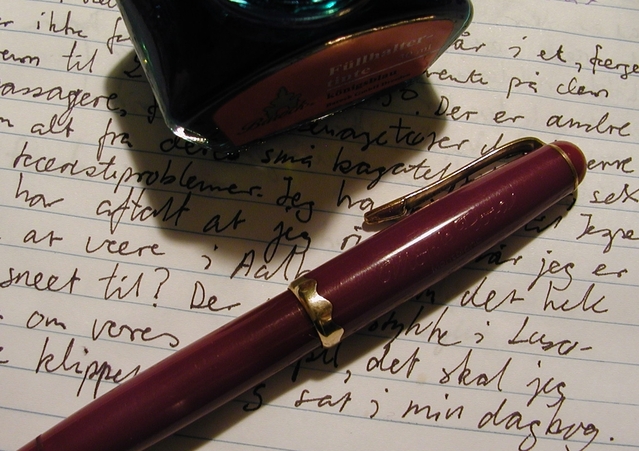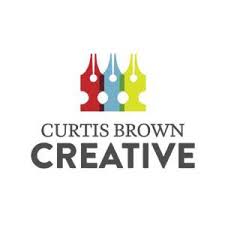Tell us a bit about yourself and how you landed the position of literary agent?
I graduated from St Andrews University in Scotland in 2004 and headed straight to Germany on a European Training Services scheme where I worked for a small independent publisher called Trojan Books. I spent most of my time researching the world of literary agents as I knew very little about them back then. I was fascinated by the business as it seemed to combine my two loves: reading and deal making. Having applied to a small advert in The Guardian, I moved back to the UK to my first ‘real’ job in foreign rights at the oldest literary agency in the UK, A P Watt, an extremely prestigious agency which dealt with very literary books. I then moved to the other side of the spectrum, working with truly commercial books at the Darley Anderson Agency where ‘bestsellerdom’ is the most important thing. I head up the Rights department here and have a strong list of fiction authors. I am also deputy MD of the Children’s Book Agency and am keen to grow this side of the business especially as Young Adult and crossover books are all the rage.
What do you think of the current state of the “British Asian” genre and what sort of books/authors are you keen to represent?
I think there are a lot of quality ‘British Asian’ books on the market that are beautifully written but most of them are often very literary and more about the writing than the story. I’d like to see more commercial / accessible literary books in this genre.
How do you normally accept submissions? And what are your most recent acquisitions?
We normally only accept hard copies – we can tell a lot from the covering letter and the first three chapters. The general rule is that if I can’t stop reading I request the rest of the manuscript. Just before Frankfurt I sold five débuts – a psychological suspense for Young Adults, The Girl with the Green Eyes by S.B. Hayes (Quercus), a novel set in the glamorous world of show business, Idol by Carrie Duffy (HarperCollins), a glitzy bonkbuster, Hollywood Sinners by Victoria Fox (MIRA Books), chick lit in the vein of Sophie Kinsella, Confessions of Karaoke Queen by Ella Kingsley (Little, Brown), and a children’s book set in the place where nightmares are made, The Nightmare Factory by Lucy Jones (Orchard Books).
I am very excited about the publication of The Guardian Angel’s Journal by Carolyn Jess-Cooke which I sold to Piatkus / Little, Brown last year. They are publishing as their super lead title for 2011 and I have already sold this at auction in twelve different languages. I think this has the potential to be a huge international bestseller.
Many writers find the search for a literary agent, difficult and emotionally exhausting. What would you say are the top five mistakes made by new authors?
I hate talking in negative so I am going to give you my top five rules to abide by when looking for a literary agent:
– research your agent, not just the company. You need to find an agent who represents authors who write similar books to you.
– write an incredible covering letter where you pitch your book in one line, tell the agent about yourself, tell them when you first started writing, if you have had anything published including short stories, which authors you feel similar to particularly if the agent you are writing to represents them, why you want that particular agent to represent you and what your next book is about.
– look for new agents who are trying to grow their lists.
– tailor your submission to the agent you are sending it to.
– make sure your first three chapters are incredibly gripping, that we are fully engaged with your main character and that there is a mini drama so we are compelled to read on.
– send an A4 synopsis, no longer
When is it acceptable to contact an agent? (At the initial stages or once the book is complete?) And what happens to the manuscript once accepted for representation?
I would finish your whole manuscript before submitting. An agent wants to know that you can finish a book before offering representation. They also want to know what you plan to write next and that you’re not just a one book wonder. If you are writing non-fiction, you can definitely submit on proposal instead.
What sorts of books do you like to read?
Anything that holds my attention – I love great stories and great characters. I want to be taken on a journey and completely escape from everyday life.
Why do literary agents appear only interested in novels and not poetry? Are there literary agents for poets?
A lot of agents love poetry but there is such a small market for poetry books and it is difficult to make a living out of. It is much better to launch an author with a début novel and then, once they are established, explore avenues for their poetry.
When is the last time you bought a book of poetry?
I haven’t since I was a student. If there was a demand for poetry, I would be selling it!
As a children’s fantasy writer why am I considered too niche and not commercial enough? (reader question)
I wouldn’t say children’s fantasy is niche. Look at Harry Potter! What I would say is that you have to start off in reality before going to the fantasy world…you have to fully engage your reader with your main character and then we can believe anything, as long as we believe your character. Look at Alice in Wonderland – there was a sense of reality before Alice goes down the hole. Harry Potter is based in the real world until Harry catches the train. This is what will catch the attention of non-fantasy readers. Your story has to start in the real world and then take the readers on a fantastical journey.
Following on from that last question raised by one of our writers, there is an unexplored important issue about Asian writers feeling like they’re pigeon holed and publishers only want to see writing that is of a certain kind – do you think this is actually the case?
I think that a lot of the well-known books by Asian writers are literary masterpieces and therefore we tend to expect this kind of writing from this genre. I think there is a huge gap for lighter women’s fiction, chick lit and more accessible literary books by Asian writers. There is potential to explore so many other areas.
What do you think of self publishing?
To be honest, I think it is like playing the lottery – it rarely takes off as people just don’t have the connection they need with the retailers. It is hard enough for publishers to launch débuts in the current climate but they have a much better chance of securing good deals with booksellers and getting the promotions that are needed.
In the current economic climate we’re reading about major book chains going into administration, authors being dropped by their agents, and writers being snubbed for celebrities. As someone working in the industry could you shed some insight into the current state of publishing and how this may affect writers?
As I said previously, it is harder to launch a début author because it takes a huge amount of investment and there is a risk factor involved – the book may not sell. In these times, it is more likely for publishers to invest more in the books already on their lists that are doing really well. However, in the current climate publishers are being more ruthless when it comes to their authors who are not selling well and you find that some authors can be at greater risk three or four books down the line.
Commercial fiction, however, is still selling extremely well and we are lucky at the Darley Anderson Agency because we specialise in this so our authors continue to thrive. We had a No.1 in the UK this week with Martina Cole and a No.1 in the US with Lee Child at exactly the same time. We also make sure we spread our success internationally so we set up lots of income fields for our clients – some of our authors are published in 30 different languages. We look at the big international picture.
Lastly, what would your dream manuscript look like?
It would have a pink bow wrapped round it and I wouldn’t be able to stop reading as soon as I turned the first page.
Madeleine Milburn (Nee Buston) has worked as a literary agent for 7 years now. She started with a Rights background so has an international take on anything she takes on. She represents Women’s and general fiction, psychological suspense, crossover, Young Adult and Children’s books, and is always on the lookout for new talent.

